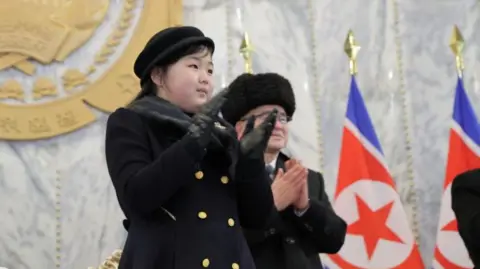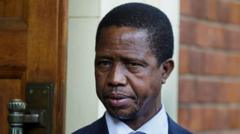In the days following his death, cardinals worldwide hastened to Vatican City to participate in the monumental burial rites and prepare for the upcoming conclave, which will herald a new papacy. The selection process has drawn attention, given the complex dynamics within the College of Cardinals, with 135 eligible to vote, many representing diverse perspectives aligned or opposed to Francis' progressive agenda.
Reflecting on his legacy, many around the globe recalled how Pope Francis championed the discussions around pressing issues like climate change, poverty, social justice, and migration, often portraying a compassionate image that resonated with a broader audience beyond Catholicism. From bustling cities like Buenos Aires, where Francis cultivated connections with the marginalized, to poignant memorials in Manila and Caracas, tributes reveal a shared lament for a leader whose efforts challenged established narratives within the church.
In the immediate wake of his passing, nations across the world—including India, Australia, and Brazil—have initiated official mourning periods, with flags lowered to honor the pontiff's contributions. Masses are being held in numerous countries to commemorate his life, highlighting the emotional connection he fostered with millions.
The search for Francis' successor is fraught with significant implications. As the Catholic Church stands at a crossroads—between progressive movements and traditionalist forces—there is widespread speculation on who will be chosen to lead the Church into a new era. Possible candidates include influential figures like Cardinal Luis Antonio Tagle, known for his empathetic approach, and Cardinal Pietro Parolin, a seasoned diplomat well-versed in international relations.
As the funeral approaches, tributes and reflections from faithful underscore a deep collective sadness for the loss of a shepherd who sought to open doors to all, emphasizing unity and compassion in a world often divided by ideological barriers. The pontiff, remembered for his openness toward marginalized communities and bold calls for peace, leaves behind a challenging legacy for his successor—a chance to shape the Church in a rapidly changing world.
To commemorate this pivotal moment, discussions arise about maintaining Francis' inclusivity, humility, and outreach during these uncertain times, urging a continuation of the dialogue he championed to foster a more inclusive world rooted in understanding and love.
Reflecting on his legacy, many around the globe recalled how Pope Francis championed the discussions around pressing issues like climate change, poverty, social justice, and migration, often portraying a compassionate image that resonated with a broader audience beyond Catholicism. From bustling cities like Buenos Aires, where Francis cultivated connections with the marginalized, to poignant memorials in Manila and Caracas, tributes reveal a shared lament for a leader whose efforts challenged established narratives within the church.
In the immediate wake of his passing, nations across the world—including India, Australia, and Brazil—have initiated official mourning periods, with flags lowered to honor the pontiff's contributions. Masses are being held in numerous countries to commemorate his life, highlighting the emotional connection he fostered with millions.
The search for Francis' successor is fraught with significant implications. As the Catholic Church stands at a crossroads—between progressive movements and traditionalist forces—there is widespread speculation on who will be chosen to lead the Church into a new era. Possible candidates include influential figures like Cardinal Luis Antonio Tagle, known for his empathetic approach, and Cardinal Pietro Parolin, a seasoned diplomat well-versed in international relations.
As the funeral approaches, tributes and reflections from faithful underscore a deep collective sadness for the loss of a shepherd who sought to open doors to all, emphasizing unity and compassion in a world often divided by ideological barriers. The pontiff, remembered for his openness toward marginalized communities and bold calls for peace, leaves behind a challenging legacy for his successor—a chance to shape the Church in a rapidly changing world.
To commemorate this pivotal moment, discussions arise about maintaining Francis' inclusivity, humility, and outreach during these uncertain times, urging a continuation of the dialogue he championed to foster a more inclusive world rooted in understanding and love.






















